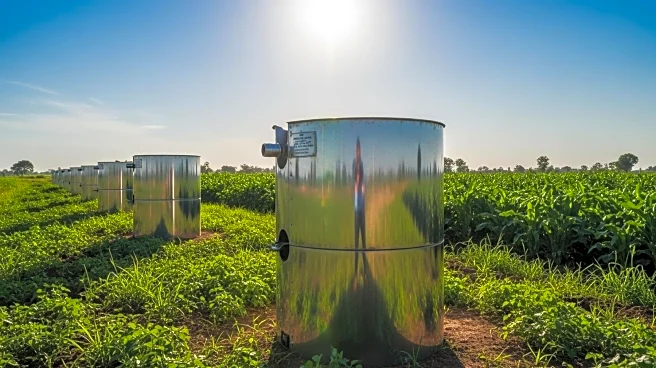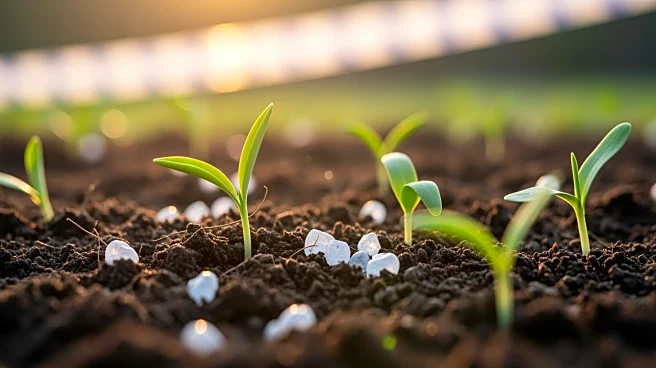What is the story about?
What's Happening?
The Minister of Food and Agriculture in Ghana, Eric Opoku, has announced a government initiative to revamp boreholes in the northern regions of the country. This effort aims to convert these underground water storage systems into reliable irrigation sources to support year-round farming activities. The initiative is part of a broader strategy to enhance agricultural productivity in areas that face water scarcity. In addition to the borehole revamp, the government plans to distribute 300,000 chicks to farmers under the 'Nkuko nketenkete' policy, providing financial support and supervision to ensure successful outcomes.
Why It's Important?
The revamping of boreholes for irrigation is crucial for improving agricultural productivity in northern Ghana, where water scarcity can hinder farming activities. By providing reliable water sources, the initiative supports farmers in maintaining consistent crop production, which is vital for food security and economic stability in the region. The distribution of chicks further complements this effort by diversifying agricultural activities and increasing income opportunities for farmers. These measures are expected to boost local economies, reduce poverty, and enhance the overall quality of life for communities in northern Ghana.
What's Next?
The government will proceed with identifying and renovating boreholes, ensuring they are effectively converted into irrigation systems. Farmers will receive the chicks and necessary support to integrate them into their agricultural practices. The success of these initiatives will likely be monitored through government oversight and community feedback. Stakeholders, including local farmers and agricultural organizations, may engage in discussions to optimize the implementation and address any challenges that arise.
Beyond the Headlines
The initiative to revamp boreholes and distribute chicks highlights the government's commitment to sustainable agricultural development. It also underscores the importance of addressing water scarcity and diversifying agricultural practices to build resilience against climate change impacts. Long-term, these efforts could lead to significant shifts in agricultural practices and economic structures in northern Ghana, fostering a more sustainable and self-sufficient agricultural sector.















